Today I almost attended a 24-hour programming contest but at the briefing I decided I didn’t fancy sitting there overnight, or being told where I can go and can’t. So I simply left. Since the point of me signing up for such an event was mainly to force myself to set aside a little time to figure out how to use Arduino, I sat there for a little while looking up what I was interested in exploring, and went to Sim Lim, where I bought a few bits and bobs and a little servo – and then went home and made my own dumb experiment…
Arduino Uno + Photocell + 1 kΩ Resistor + Small Servo

BRIGHT!

DARK…
Okay this is basically a superbeginner mashup of these two basic tutorials: Adafruit’s Making Sounds (Lesson 10) + Adafruit’s Servo Motors (lesson 14). Well I guess I gotta start somewhere so don’t laugh at the simpleness of this. I’m just writing it out here because I will probably forget it all if I don’t write it down properly, and god knows actual hardware is an undiscovered country for me.
#include
int servoPin = 9;
Servo servo;
int angle = 0; // servo position in degrees
int photocellPin = 0;
void setup()
{
servo.attach(servoPin);
//Serial.begin(9600);
}
void loop()
{
int reading = analogRead(photocellPin);
int newAngle = reading/3 – 100;
//Serial.print(newAngle);
//Serial.print(“n”);
servo.write(newAngle);
delay(60);
}
Fritzing
I made a sketch of the above with Fritzing. Fritzing is a useful tool for designers and programmers to design and document their prototypes for pcb boards, arduino-based and other electronics projects. Drag and drop and pull…


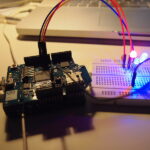
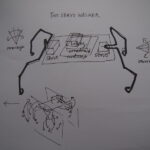


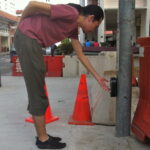
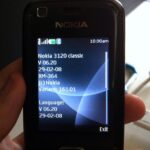
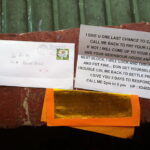

0 responses to “Simple Light Meter (Arduino + Servo + Photocell)”
Thank you soo much! 😀